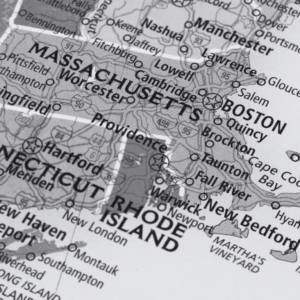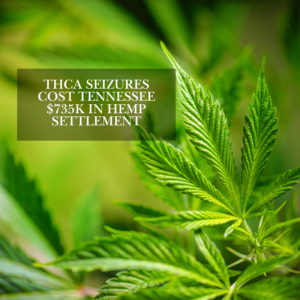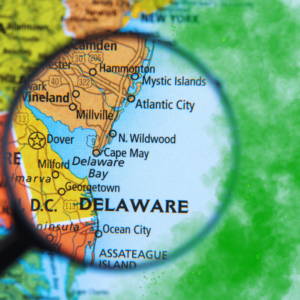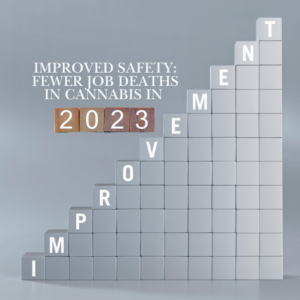Only One State Eases Cannabis Laws in Unpopular 2024 Elections

2024 Election Day Results: Cannabis and Psychedelics Ballot Initiatives Across Five States
Election Day in 2024 featured crucial ballot initiatives across multiple states, focusing on the legalization of recreational and medical marijuana as well as certain psychedelics. Voters in Florida, North Dakota, South Dakota, and Nebraska weighed in on marijuana laws, while Massachusetts explored the possibility of legalizing specific psychedelics. As the votes were tallied, only one state emerged with relaxed marijuana restrictions, bringing the national count of states with legalized cannabis in some form to 39. Here’s a breakdown of how each state voted and the impact of these ballot initiatives.
North Dakota: Recreational Cannabis Measure Rejected
North Dakota voters were presented with Measure 5, which would have legalized recreational cannabis for individuals 21 and older. The measure aimed to establish a new chapter in the North Dakota Century Code, outlining provisions for cannabis production, processing, and sales. It included regulations for the state to oversee cannabis businesses, as well as penalties for violations and protections for adult users. Measure 5 also proposed that cannabis laws would override local ordinances, meaning municipalities could not independently prohibit adult-use cannabis.
Despite the comprehensive proposal, North Dakotans voted against the measure, keeping recreational marijuana illegal. The rejection aligns with previous voting trends in North Dakota, where residents have consistently declined to legalize adult-use cannabis, despite allowing medical marijuana since 2016.
South Dakota: Voters Say No to Recreational Cannabis Again
South Dakota’s Initiated Measure 29 also aimed to legalize recreational marijuana for adults 21 and older, allowing possession of up to two ounces and the cultivation of up to six plants per person. The measure included restrictions to maintain cannabis prohibition for individuals under 21 and prohibited driving under the influence of marijuana. If passed, the measure would have established a regulated market for recreational cannabis, building on the state’s medical marijuana framework.
However, voters in South Dakota rejected the measure. This follows a similar result in 2022, when a recreational marijuana initiative failed. South Dakota’s stance reflects its conservative approach to cannabis legalization, despite a brief period in 2020 when voters approved a recreational cannabis measure, which was later overturned by the state Supreme Court.
Florida: Majority Backs Recreational Cannabis, but Amendment Falls Short
In Florida, voters considered Amendment 3, a constitutional amendment to legalize recreational marijuana for adults 21 and older. The amendment would have allowed residents to possess up to three ounces of cannabis and five ounces of marijuana concentrate. Additionally, it proposed permitting existing medical dispensaries to expand sales to recreational users, creating a more extensive network of cannabis retailers across the state.
Despite garnering majority support, Amendment 3 failed to meet the 60% threshold required for constitutional amendments in Florida. Although a substantial portion of Floridians backed the measure, the state’s stringent requirements for constitutional amendments ultimately blocked its passage. The outcome signals continued interest in recreational cannabis but highlights the legal hurdles that remain in place for full legalization in Florida.
Nebraska: Medical Marijuana Gains Approval
Unlike the other states, Nebraska focused solely on medical marijuana in this year’s election. Initiative Measure 437 and Initiative Measure 438 were on the ballot, offering Nebraskans the opportunity to decide whether medical marijuana should be permitted for patients with qualifying conditions. Measure 437 would allow possession of up to five ounces of cannabis for medical purposes, while Measure 438 addressed regulations around production, distribution, and dispensaries for medical cannabis.
Nebraska voters approved both initiatives, making it the only state in this election cycle to expand cannabis access. Although recreational cannabis was not on the ballot, the legalization of medical marijuana marks a significant shift for Nebraska, a traditionally conservative state. Legal challenges could still arise regarding the eligibility of these measures, but the vote reflects a growing acceptance of medical cannabis in the Midwest.
Massachusetts: Psychedelics Initiative Fails
In Massachusetts, where both medical and recreational cannabis are already legal, the focus turned to psychedelics. Question 4 proposed legalizing certain natural psychedelic substances for personal use by individuals 21 and older. The initiative sought to allow the cultivation, possession, and use of psychedelics like psilocybin under regulated conditions. It also proposed the establishment of a Natural Psychedelic Substances Commission to oversee regulation and taxation.
Massachusetts voters ultimately rejected Question 4, halting the move to legalize psychedelics in the state. While some municipalities in the U.S. have decriminalized certain psychedelics, Massachusetts voters signaled reluctance to expand these policies statewide. The outcome suggests that, despite increased interest in psychedelics for therapeutic use, broader legalization remains controversial.
Summary of 2024 Cannabis and Psychedelics Ballot Results
This election cycle saw varying results on cannabis and psychedelics across the five states:
North Dakota: Measure to legalize recreational cannabis was defeated.
South Dakota: Voters rejected recreational cannabis legalization.
Florida: Majority support for recreational cannabis fell short of the 60% needed to amend the state constitution.
Nebraska: Medical marijuana measures passed, allowing limited cannabis use for qualifying patients.
Massachusetts: Voters rejected a proposal to legalize psychedelics for personal use.
The outcomes highlight a patchwork of public opinion on cannabis and psychedelics, with each state reflecting its unique political and cultural landscape. While some states are expanding cannabis access, others continue to resist broader legalization.
Implications for the Future of Cannabis and Psychedelics Legalization
The 2024 ballot results underscore the complex and often unpredictable nature of cannabis and psychedelics legalization efforts in the U.S. States like Nebraska, which approved medical marijuana, illustrate a trend of gradual acceptance, especially for therapeutic purposes. However, the repeated rejection of recreational cannabis measures in North and South Dakota and the failed psychedelics initiative in Massachusetts indicate ongoing hesitancy toward full legalization.
In Florida, where cannabis advocates were close to achieving recreational legalization, the narrow miss may encourage continued advocacy. With growing public support, another attempt at legalization in the future remains possible, especially if proponents can strengthen their campaign to meet the constitutional threshold.
The Road Ahead for State-Level Cannabis and Psychedelics Policy
The mixed results from the 2024 election suggest that cannabis and psychedelics legalization efforts will continue to evolve state by state, reflecting diverse voter priorities. States with existing medical marijuana programs may see future pushes for recreational cannabis, while states that have already embraced recreational use may consider new areas, like psychedelics, as public interest grows.
The results from this election cycle will likely influence future legislation and ballot measures, particularly as neighboring states observe each other’s outcomes. For advocates and policymakers, the 2024 results provide insights into the strategies needed to gain public support, especially in regions with more conservative leanings.
The 2024 election cycle highlighted ongoing shifts and challenges in cannabis and psychedelics policy across the U.S. While Nebraska’s approval of medical marijuana added to the growing list of states with cannabis programs, setbacks in other states show the difficulty of achieving recreational legalization and broader drug reform. As the national conversation around cannabis and psychedelics continues, these results illustrate the gradual but significant changes taking place within state legislatures and public opinion alike.











